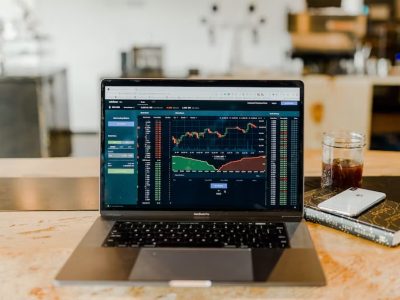In the vast and intricate world of finance, few entities wield as much influence as central banks. These financial institutions play a pivotal role in shaping the global economy, and one of the arenas where their impact is most pronounced is the foreign exchange (forex) market. In this article, we will delve into the intricate relationship between central banks and forex trading markets, exploring the basics, monetary policies, and the various tools at their disposal like a forex trading academy.
The Basics of Forex Markets
It’s crucial to grasp the fundamentals of forex markets to understand the dynamics of central bank influence. Forex, short for foreign exchange, is a decentralised global marketplace where currencies are traded. Unlike traditional stock markets, forex operates 24 hours a day, five days a week, reflecting the constant flow of international trade and financial transactions. Trillions of dollars are exchanged daily, making it the largest and most liquid financial market.
Central Banks and Monetary Policy
Central banks wield immense influence through monetary policy, a cornerstone of economic management. Entrusted with overseeing a nation’s money supply, central banks navigate interest rates, inflation targets, and financial stability. By adjusting interest rates, they aim to stimulate or cool economic activity. The delicate balance in crafting and implementing monetary policy impacts everything from borrowing costs to employment levels. Understanding this pivotal role is critical for investors, economists, and citizens alike, as it shapes the financial landscape and can have far-reaching effects on a country’s prosperity.
Central Banks’ Impact on Exchange Rates
Central banks profoundly impact exchange rates, influencing the relative value of currencies in the dynamic forex market. Key determinants, such as interest rate decisions and monetary policy shifts, trigger immediate market responses. For instance, a central bank’s interest rate hike can attract foreign capital, strengthening the currency. Conversely, rate cuts may lead to depreciation. Forex traders scrutinise major bank communications for cues, as even subtle hints can spark substantial currency fluctuations. This intricate relationship underscores the centrality of central banks in shaping the global economic landscape through their influence on exchange rates.
Central Bank Interventions
Central banks, equipped with vast reserves, can directly intervene in forex markets to stabilise or manipulate their currencies. Intervention occurs when a central bank buys or sells its own currency to influence its value. This is often done to counter excessive volatility, boost exports, or address economic imbalances. While interventions can be effective in the short term, their long-term impact is debated and can sometimes create unintended consequences.
Forward Guidance and Communication
Forward guidance, a communication strategy employed by central banks involves providing clear signals about future monetary policy intentions. The effectiveness of this guidance lies in shaping market expectations and influencing investor behaviour. Forex traders carefully parse central bank statements and speeches for clues about future policy directions, as this information can significantly impact currency valuations.
Global Economic Events and Central Bank Responses
Forex markets are deeply intertwined with global economic events, and central banks play a critical role in responding to these occurrences. Economic indicators, geopolitical events, and crises can trigger swift and substantial market movements. Central banks must navigate these challenges, adapting their policies to maintain stability. Understanding these responses is crucial for forex traders looking to anticipate and capitalise on market shifts.
How to Learn Forex Trading Online?
Embarking on a journey to master forex trading online is best achieved through a reputable forex trading academy. Academies like Queensway Academy offer a structured and comprehensive approach to learning, guiding enthusiasts from foundational concepts to advanced strategies. An online trading academy has a plethora of courses, webinars, and tutorials, aspiring traders can gain insights into market dynamics, technical analysis, and risk management. The interactive nature of online academies allows learners to engage with experienced instructors and fellow traders, fostering a supportive community. Whether a novice or a professional trader seeking to refine skills, a trading academy serves as a valuable resource for honing expertise in the dynamic world of currency trading.










Comments